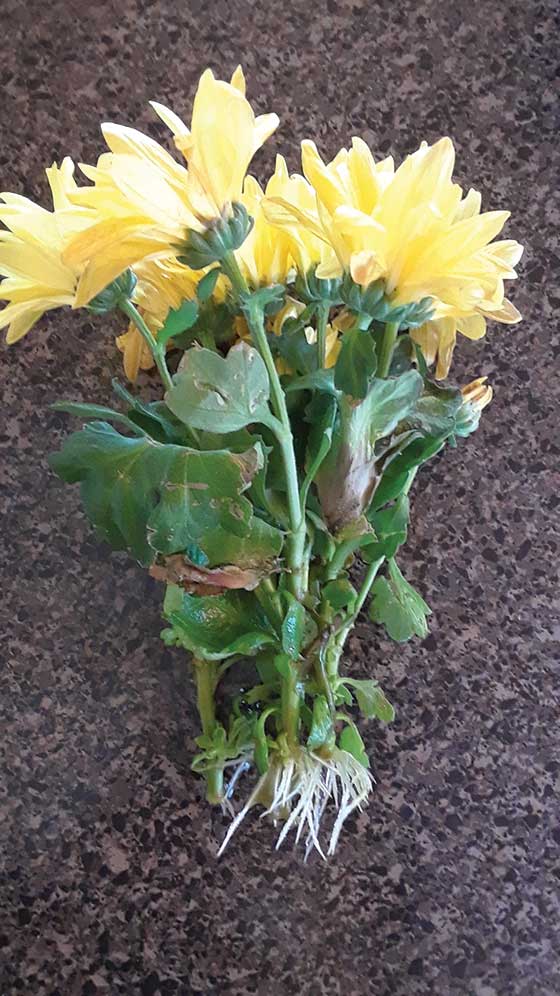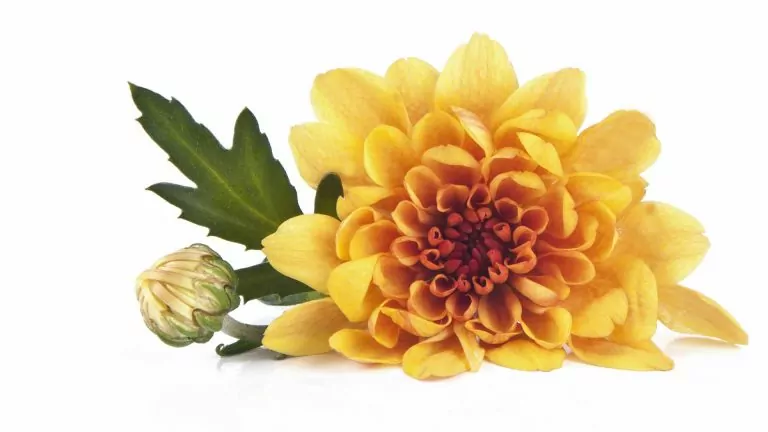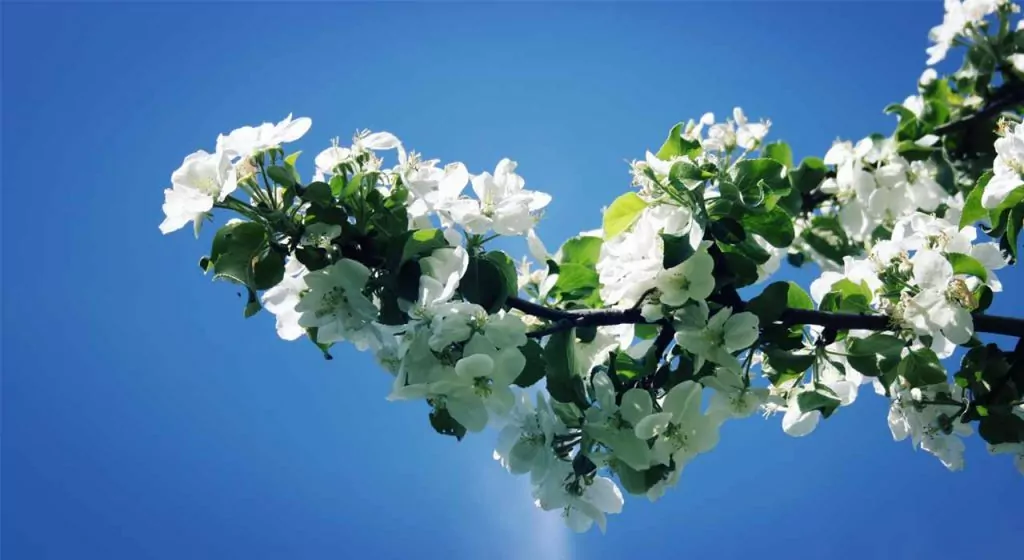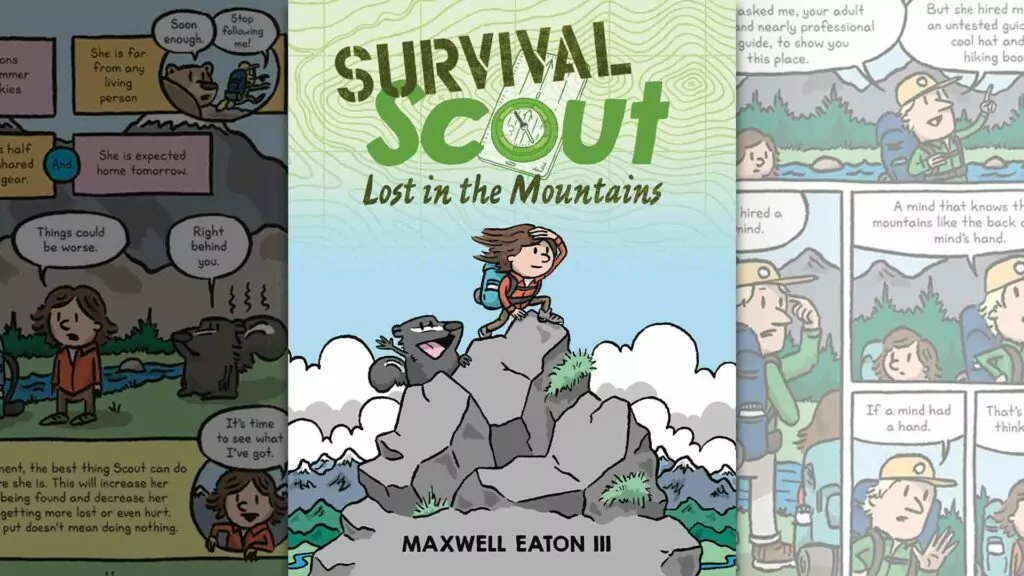I learned an important lesson from a cheap house plant last week – that plant was a chrysanthemum (mum), and it comes with a background story that needs to be understood to get the lesson.
DESTINED TO DIE
Last fall, when I was working with ARPA Canada, I did about fifteen presentations alongside my colleagues as part of our fall tour. The theme for this tour was on being “rooted in Christ.” At each of these presentations I quoted from Jeremiah 17:7-8:
But blessed is the one who trusts in the Lord,
whose confidence is in Him.
They will be like a tree planted by the water
that sends out its roots by the stream.
It does not fear when heat comes;
its leaves are always green.
It has no worries in a year of drought
and never fails to bear fruit.
I also made reference to a recent book by Al Mohler called The Gathering Storm, in which he calls out what he refers to as “cut flower civilizations.” At this point in the presentation, I’d proceed to hold up a house plant and then use a pair of scissors to hack off the flowers. Each night I would hold up the cut flowers and say “when we are cut off from our Christian roots, a civilization is destined to die.”
Sometimes I would add a few lines: “we all know what will happen to these flowers now that they are cut. We can give them sunlight and water, but they won’t survive without roots.”
In the presentation, we gave examples of how Canada was cutting itself off from the roots that give life, but we also spoke to how that didn’t mean there was no hope. I explained that “if our roots go down into Jesus Christ then we can have complete confidence that He will sustain His children. Although our civilization may not last, His people and His Church will.”
NEW LIFE
Fast forward to this spring and the ARPA team came to my hometown to do the same presentation. But this time I was in the audience, alongside a few of my children. One of my former colleagues gave the same demonstration, using a mum that he picked up at the local grocery store. He asked my son Nathan to hold it while he cut the flowers, and then gave the flowers to Nathan to take home.
Nathan took those cut flowers home and my wife Jaclyn put them in a vase with water. I expected that they would wilt quickly and be thrown out in a few days. I then promptly forgot about them.
 A month later I was surprised to see that the flowers were still alive in that vase. And when we pulled them out of the water we were astonished to see that they had started growing some very impressive roots!
A month later I was surprised to see that the flowers were still alive in that vase. And when we pulled them out of the water we were astonished to see that they had started growing some very impressive roots!
Jesus once said that if his disciples had to keep quiet, “the stones will cry out” (Luke 19:40). In this case, the flowers were crying out. Their message was hard to miss. It is God who gives life, also to civilizations. Just as God birthed and blessed Western Civilization, so He is able to cause it to grow new roots if that is His will.
Indeed, we serve a God of abounding grace. When we, as individuals, try to go our own way, if God is pleased to save us, He will achieve His purpose. He brings us back. God can also give a new lease on life to a civilization.
ROOTED HOPE
20th Century historian Arnold Toynbee once wrote a 12-volume book set about the rise and fall of 26 civilizations throughout history. He concluded that “great civilizations are not murdered. They commit suicide.” I once wrote:
“What happens to a society which discourages new life, kills vulnerable life, surgically alters healthy bodies to conform to unhealthy minds, puts the greatest taxes on those who are the most economically productive, and treats a basic building block of life (carbon) as if it were a pollutant? That society is committing suicide.”
In other words, even though I care deeply for our civilization, I had little hope for it.
But through this mum, I was reminded that civilizations don’t rise and fall based simply on the behavior and choices of their leaders and citizens. Jesus Christ is guiding all of history and gets to determine what happens to the West. And He may well show His grace, just as He has done to so many of us individually.
My wife Jaclyn has since cut the flowers off the stems and planted the roots (with the stems) in new soil. She explained to me that the plant’s energy needs to now go into taking root, not keeping the flowers alive. The flowers can come later.
Indeed, may God be gracious to the West and allow us to yet grow our roots into Him. There may yet be new flowers blooming in His time.
Let’s pray that God will work revival, while shining His grace and truth wherever He plants us.
Mark Penninga is the Executive Director of Reformed Perspective.















